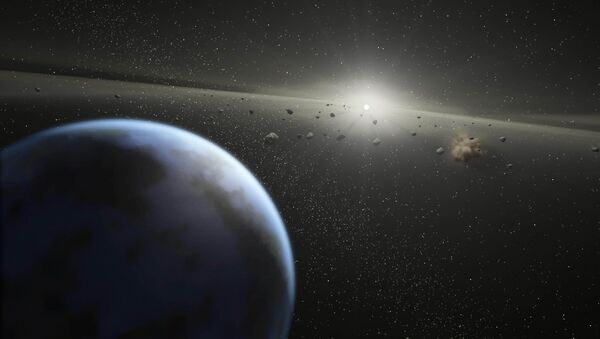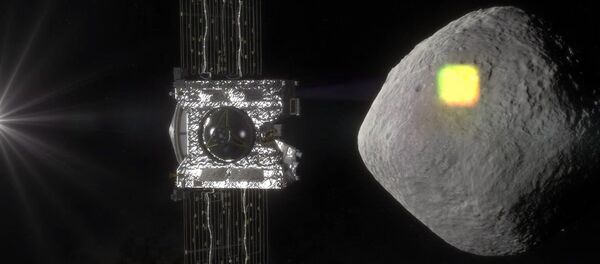The presidium of the Russian Academy of Sciences agreed upon developing a national program to research the issues and methods of countering hazards from space, such as asteroids, comets and space debris, Scientific Director of the Academy's Astronomy Institute, Boris Shustov, told Sputnik on Thursday.
"At present, foreign countries, primarily the United States, have advanced in their development of systems for detection of space hazards. At the recent meeting of the RAS presidium, the academics voted to support the draft statement to begin the work on preparing the modern variant of the national program and a wider range of issues, including the whole range of space threats," Shustov said.
At the RAS presidium session on space hazards on Tuesday, the head of the strategy planning and special programs directorate of Roscosmos, Yuri Makarov, suggested that a national plan on countering such risks should be developed.
READ MORE: Aliens on the Moon? New VIDEO Sparks UFO Speculation Online
According to Shustov, Russia’s contribution to detecting dangerous asteroids and comets is 0.1 percent while the United States is the most active country in this area.
In 2017, European Space Agency (ESA) reported that a potential space intruder, measuring 15-30 meters (49-98 feet) flew past the Earth at a distance of 44,000 kilometers (27,340 miles).
On 30 June 1908, Eastern Siberia was hit by an explosion, generally attributed to the air burst of a comet or a meteorite. According to different scientific estimations, about 850 square miles (2,200 square kilometers) of local forest was flattened.




